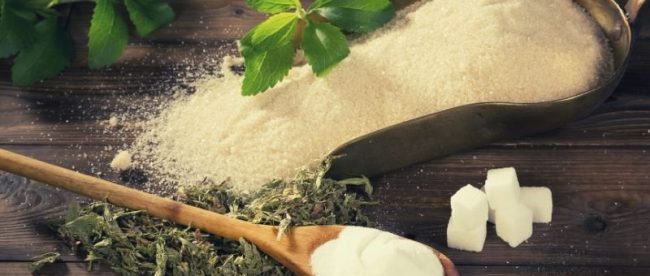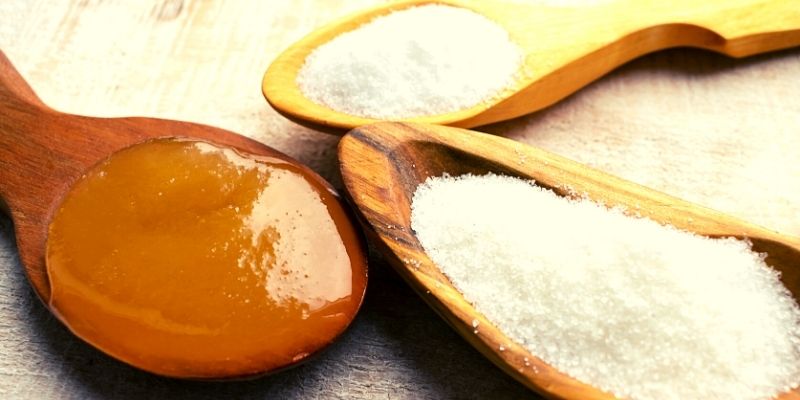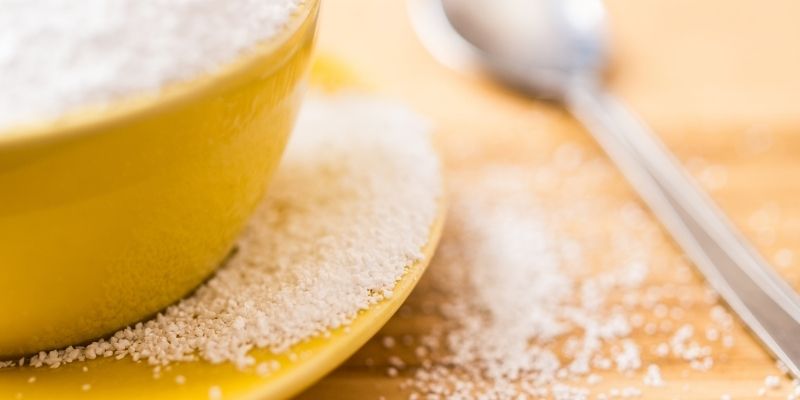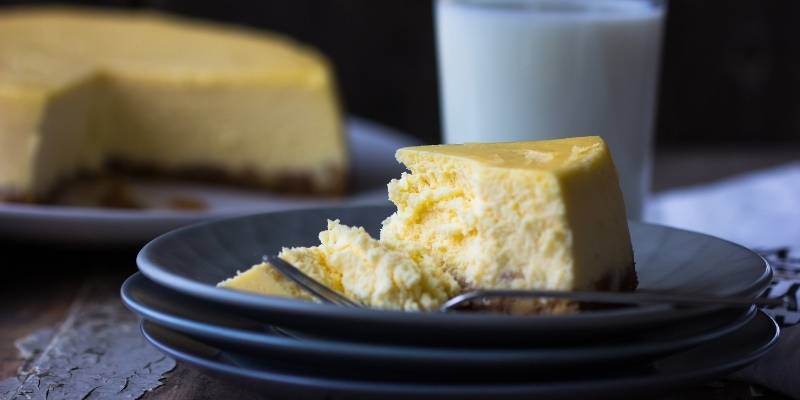Is Allulose Keto? And How Safe Is It? (+ Best Use in Keto Baking)

Allulose is a simple sugar that has similarities with regular white sugar and fructose, the sugar naturally found in fruits. Also known as D-psicose, allulose tastes 70% as sweet as table sugar (whose scientific name is sucrose). Also, allulose contains 90-97% fewer calories than sugar has. That, apparently, makes Allulose keto-friendly. But let’s try to dig deeper and figure out whether or not this sweetener is as good as its marketing makes us think.
Is it really keto? Is it safe? And what are the side effects of incorporating allulose into our diets? Just a few questions I’d like to research to start with.
Do you have a particular question about using allulose on keto? Then use the table of contents below to jump to the most relevant section. And you can always go back by clicking on the arrow in the right bottom corner of the page. Also, please note that some of the links in this article may be affiliate links. For more details, check the Disclosure section at the bottom of the page.
What is allulose?

Allulose is a simple monosaccharide sugar. It is an alternative for table sugar, and it is preferred by people with diabetes or obesity. That’s because allulose barely has any calories (0.4 per gram) and does not impact blood sugar levels. Despite all this, it still looks and tastes like table sugar.
What is allulose made from? Allulose is called a “rare” sugar because it is found in small quantities in nature, such as wheat, raisins, figs, and jackfruits. It is also extracted and manufactured from fermented corn.

Is allulose safe?
Considering what we know about artificial sweeteners like aspartame (that it’s horrible for your health), everyone has the same question in mind: Is allulose safe? Is it natural? Can it replace table sugar?
Let’s start by making some things clear: Allulose is not an artificial sweetener. It is natural, unlike aspartame or Splenda. Since it is extracted from plants, it qualifies as safe for daily use.
You can use allulose whenever you’re craving a little something sweet. However, be sure to check that your dessert recipe doesn’t have any ingredients that might kick you out of ketosis. In addition to that, remember that you can indulge in carbs, but keep them minimal. See the recipe at the bottom of this post for a delicious, decadent vegan keto cheesecake.

Allulose nutrition facts
Allulose is considered a carbohydrate. It looks and tastes like sugar, but that’s where the similarities end. Allulose barely has calories, it scores zero on the glycemic index, and does not metabolize in the body.
E.g., one teaspoon of brand of allulose has 0g of fat, 0g of protein, and 4g of total carbs. According to the FDA, allulose contains 0.4 calories per gram. That beats the 4 calories per gram found in white sugar.

Allulose side effects
Allulose has virtually no side effects. But, let’s be honest: too much of anything is bad for your health. Studies attempting to determine the effects of allulose on the gastrointestinal system showed that healthy amounts of allulose had no side effects in participants.
However, consuming about 54 grams of allulose led to some digestive problems. Keep in mind that one table sachet of allulose is only about 4 grams in weight. Unless you plan on eating 54 grams of allulose in one day, you have nothing to worry about when it comes to this natural sweetener.
Note: Whenever trying out new foods, it is recommended to try out a little to check whether you are allergic or intolerant. In rare cases, some people experience mild digestive issues, so be sure to determine the right amount of allulose for your unique preferences.


Is allulose keto?
The ketogenic diet has a few rules. Mainly keep your fats high (and healthy) and carbs (aka sugars) low. That begs the question: Is allulose keto? Here are the facts:
First of all, allulose is actually considered a carbohydrate by the FDA. In nutrition labels, it is not listed under sugars but under total carbohydrates. In one serving of allulose (1 teaspoon), there are 4g of total carbs.
Not bad for keto at all. The daily cap for carbs in keto is at 20g. Stay under 20g, and you will be just fine. Remember that the most accurate way to check if you are in the state of ketosis is to use keto strips.
Secondly, the keto diet dictates that we shouldn’t have any sugar. Well, allulose can be revolutionary for keto because it does not affect blood sugar. Allulose won’t spike your insulin-like table sugar.
This is a big deal because when your body detects insulin in the blood, ketones won’t be produced. No ketones in blood equal, getting kicked out of ketosis. That said, allulose allows your body to keep producing ketones so you can safely stay in ketosis.

Will allulose kick you out of ketosis?

The FDA has approved allulose as GRAS, or Generally Recognized as Safe. It has a glycemic index of zero, and this means that it does not raise blood glucose levels.
Allulose passes through your body without ever metabolizing into energy. That’s great because, in the ketogenic diet, you need only ketones to give you energy. Any other forms of energy will stop ketosis.
Allulose and ketosis might be the perfect combination for you if you’re trying to lose weight but still want to satisfy your sweet tooth. Eating low to moderate amounts of allulose will not kick you out of ketosis.

Allulose in keto baking
Allulose is as close to white sugar as any sugar-alternative gets. It comes in granulated forms, as well as a liquid sweetener. Allulose performs like sugar when it comes to baking. You won’t get any unexpected behaviors in your baked goods if you use allulose. That means no crystallization or liquifying, as seen in some sugar replacements.
In addition to baking, you can also use allulose to sweeten coffee, tea, cocktails, and other snacks.
Keto cheesecake with allulose
This vegan keto cheesecake tastes like the real thing, will melt in your mouth, and deliver that lovely sweetness it promises.
Notes
This keto cheesecake will last up to 4 days in your fridge, but it is best eaten within the first two days.
One slice of this cheesecake only has 10.3g of net carbs per serving (1 slice). And after all, it's not that much of a trade off for such a gorgeous dessert.
Ingredients
- ½ cup of rolled oats
- ½ cup of raw almonds
- 2 tablespoons of granulated allulose
- 1 large pinch of pink Himalayan salt
- 2 ½ tablespoons of melted coconut oil
- 1 cup of coconut cream
- 1 cup of raw cashews½ cup of granulated allulose
- 1 tablespoon of melted coconut oil
- 2 teaspoons of pure vanilla extract
- 3 tablespoons of lemon juice
Instructions
- 1. Preheat your oven to 350 F. To prepare the crust, combine all ingredients except coconut oil in a high-speed blender to achieve a crumbly texture.
- 2. Combine coconut oil into the mixture to form a dough for the crust and press into your baking pan.
- 3. Pop into your oven at 325 F for 15 minutes.
- 4. For the filling, soak the raw cashews in hot water for an hour, then drain. Mix it with coconut cream, melted coconut oil (1 tablespoon), vanilla and lemon juice until creamy and smooth. Add filtered water if needed.
- 5. Pour filling into your crust-lined pan and bake for thirty minutes or until the sides look slightly dry and the center is jiggly but not liquidy.
- 6. Rest for 10 minutes and transfer to the refrigerator for 4 hours.
Nutrition Facts
Keto cheesecake with allulose | Recipe Card
Serves: 8
|
Amount Per Serving: 1 slice
|
||
|---|---|---|
| Calories | 310 | |
| % Daily Value* | ||
| Total Fat 27.9g | 41.5% | |
| Saturated Fat 16g | 80% | |
| Trans Fat 0mg | ||
| Cholesterol 0mg | 0 | |
| Sodium 9mg | 0.4% | |
| Total Carbohydrate 12.8g | 4% | |
| Dietary Fiber 2.5g | 8% | |
| Sugars 2.5g | ||
| Protein 5.5g | ||
| Vitamin A 0mg | Vitamin C 0mg | |
| Calcium 32mg | Iron 2mg | |
* Percent Daily Values are based on a 2,000 calorie diet. Your daily values may be higher or lower depending on your calorie needs.
Vegan Keto Diet Recipes and Tips
Thanks for the graphics: Canva.com
Disclosure: At vegketodiet.com I only mention the products that I researched and considered worthy. But it’s important to note that we are a participant of several affiliate programs, including but not limited to VigLink and Amazon Services LLC Associates Program. As an Amazon Associate, this website earns from qualifying purchases. Also please note that I am not a doctor. As such readers are strongly recommended to make decisions that might affect their health by doing their own research. At vegketodiet.com I only document and describe thoughts, researches and ideas that proved to be working for me.


